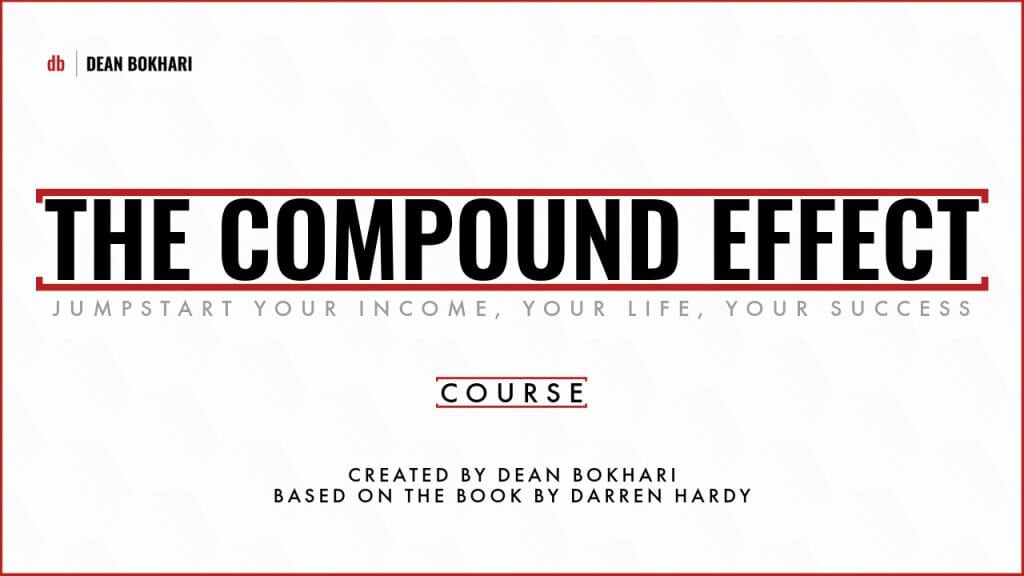Take Ownership of Your Life
🎧 Press Play to start this lesson.
You alone are responsible for what you do, don’t do, or how you respond to what’s done to you.
— Darren Hardy, The Compound Effect
We’ve all experienced luck and opportunity in one way or another throughout our lives. But the difference between successful people and unsuccessful people has very little to do with luck—and a lot to do with how they respond to “lucky” opportunities as they come their way.
Luck, as the old saying goes, is when preparation meets opportunity.
When a successful person wants something, they begin preparing themselves to receive it…
They learn.
They practice.
They search for their goal like a hunter.
And when that “lucky” opportunity finally arises, they seize it because they’re READY for it.
Now, let’s compare the behaviors and habits of a successful person against those of an unsuccessful person…
When unsuccessful people want something, they fumble their chances of getting it by waiting around for that “lucky” opportunity to come to them…
No learning.
No practicing.
No preparation.
Here’s a formula for “getting lucky” from The Compound Effect:
PREPARATION + ATTITUDE + OPPORTUNITY + ACTION = LUCK
Preparation (self-improvement)
+
Attitude (mindset)
+
Opportunity (a good thing coming your way)
+
Action (doing something about it)
=
LUCK!
PREPARE for what you want. Develop a positive mental ATTITUDE backed by unshakeable self-belief. Be ready to seize the OPPORTUNITY when it comes your way… And when it does, take immediate ACTION to make it happen.
☝️ That’s how you “get lucky.”
If you’ve been looking for the secret sauce, now you know the recipe.
The reality is, we’re constantly presented with “lucky” opportunities.
But only a select few notice them and take action on them.
Storytime… The other day, I was playing catch with my three-year-old son, Rumi. I threw him the ball, and he missed the catch. As the ball began to roll away toward the edge of our backyard, which is on a hill, Rumi began chasing after it.
I stood there, proudly watching him as he hustled after the ball.
But JUST as he came within reaching distance of the ball—he stopped…
Instead of picking it up, he just stood there, watching the ball as it rolled closer and closer to the edge of the hill.
At this point, I began dashing toward the ball while yelling, “Rumi! Rumi! Pick up the ball before it rolls down the hill!”
But I didn’t make it in time.
And the ball rolled down the hill and into the bushes.
I look down at Rumi, “Buddy, why didn’t you pick up the ball when you had the chance?”
“I dunno.” He says.
“Can you go get it now, Dada?”
🤦♂️
If Rumi were an adult, I’d have told him to take responsibility—to take ownership—and get the damn ball himself.
Here’s the moral of the story…
Far too many grown adults treat the opportunities they’re presented with in life just like my son did with the ball—instead of catching them, they drop the ball and watch it roll away.
So, how do you avoid dropping the ball? How do you prevent yourself from “fumbling the bag?”
Let’s talk about it…
In order to take ownership of your life and your future success you MUST choose to be 100% responsible for everything in your life, good and bad.
You must become conscious of every decision you make and every action you take.
Because every decision and every action—no matter how small—has a consequence.
And you have the power to decide whether those consequences will be positive or negative, by making smarter choices and becoming more thoughtful about the actions you take.
Oh, and guess what?
You can start doing this TODAY.
You don’t need to make dramatic changes overnight…
All you need to focus on is making minor changes + incremental improvements—day after day, after day, after day—until they’ve COMPOUNDED into something major.
Small course corrections, over time, lead to massive improvements.
☝️ THIS is the beauty of the compound effect.
Actionable insights
Optional: download and use the habit/goal tracker in the Materials tab at the top of this page for this exercise.
1. To take ownership of your life, identify one area of your life you want to change or improve.
- Choose ONE area of your life you’ve struggled with in the past, or desperately want to change. You likely already know what this is.
2. Track your progress.
- Once you’ve identified what you want to change, think about the actions you can take to start making progress.
- Bring awareness to the decisions you make + the actions you take by methodically monitoring your progress in this area. Track every bit of progress. What gets measured gets managed. For example:
- If you’re working on changing your eating habits, then keep a food journal.
- If you’re working on becoming a better communicator, record + review every presentation you deliver.
- If you’re working on transforming your financial future, write down every expense, keep an eye on every investment, know exactly how much comes in and goes out, etc.
3. Keep your changes simple + easy to track.
- You don’t need to get fancy tools or waste time learning to use a complicated project management app. A notebook will do. So will the Notes app on your phone. Keep it simple. Don’t overcomplicate.


